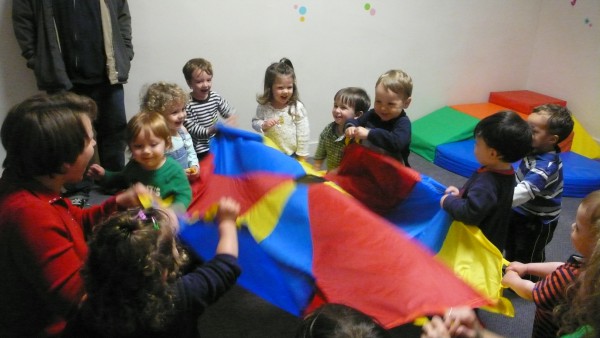Women need childcare to work, but can’t work enough to pay for childcare
“Womyn make up the vast majority of service sector workers and part-time workers, yet we do not have a child-care system that allows part time workers or workers with untraditional hours to access subsidized child care,” said Shana Kealey, co-founder of the George Brown College parent’s association, via email.
According to a report by David Macdonald and Martha Friendly called The Parent Trap: Child Care Fees in Canada’s Big Cities done through the Canadian Centre for Policy Alternatives (CCPA), showed that for infants one and a half years or under, child-care costs $1,676 a month. For toddlers one and a half to three years the cost is $1,324 a month, while preschool fees for children between three to five years costs $998 a month.
The report indicates that Torontonians pay the most in infant and toddler care fees, and are among the highest in a cross-section of 22 other Canadian cities, and for women, these high child-care fees make up approximately 34 per cent to 35 per cent of their total income, according to the report.
This meticulously researched data supports Kealey’s belief that “the lack of a universal, government funded, progressive child-care system is one of the social mechanisms that marginalizes womyn’s economic, social and political capacity.”
The report outlines how this reality actually plays out in the lives of Canadian parents, stating that “Canadian parents are working parents.”
It discusses the realities faced by families that rely on child care to be able to work, as well as that women’s labour force participation tends to be closely tied to availability and affordability of child care. Where child care is readily available and affordable, the report also states that women’s participation in the labour force as well as birth rates often hold steady or increase.
Being a parent, Kealey has observed this first-hand and as a result of her lived experiences she believes that, “a child-care policy is really all about understanding the lived realities of families, being committed to the economic, social and political inclusion of womyn and prioritizing the best possible care for our future generation. The financial costs of designing and implementing a safe, affordable, universal child-care system do not compare to the costs of leaving womyn and children behind.”
Despite the beliefs of parents like Kealey and the conclusions of The Parent Trap, it would appear the Canadian government has other priorities, with Canada’s spending on early childhood education and care (ECEC) being between 0.2 per cent and 0.34 per cent of the nation’s GDP, half the average compared to other countries in the Organization for Economic Co-operation and Development (OECD).
The consequences of this failure to provide adequate spending on ECEC are broad, and according to the report, “affordable child care isn’t just important for parents, it’s important to Canada’s economy.”
After looking at these statistics, Kealey’s question for the Canadian government about their priorities is simple, “investing in womyn and children is investing in our future. What is more important than that?”


